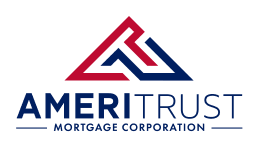The Policies
Mastering mortgage rate lock policies
A mortgage rate lock policy is an agreement between the borrower and the lender that guarantees a specific interest rate for a set period of time, typically between 30 and 90 days.
Definition
A mortgage rate lock policy is an agreement between the borrower and the lender that guarantees a specific interest rate for a set period of time, typically between 30 and 90 days.
Protection against Rising Rates
Rate lock policies can be helpful for borrowers who are concerned about interest rates rising before their loan is funded. By locking in a rate, borrowers can protect themselves against potential increases.
Potential Cost
Depending on the lender, borrowers may need to pay a fee to lock in a rate. This fee can be a flat fee or a percentage of the loan amount, and may or may not be refundable.
Rate Lock Extensions
If a borrower's rate lock is set to expire before their loan is f unded, they may be able to extend the rate lock for an additional fee. However, this is not always guaranteed and can depend on the lender's policies.
Float Down Option
Some lenders may offer a "float down" option that allows borrowers to adjust their interest rate lower if rates have fallen since they locked in their rate. However, this option may also come with additional fees.
Timing
Rate locks typically expire after a set period of time, so borrowers should be aware of the timing and make sure that their loan is funded before the lock expires.
Cancel Plan
Cancellation policy
If a borrower decides to cancel their loan after locking in a rate, they may forfeit any fees paid for the rate lock, depending on the lender's policies.
It's important for borrowers to carefully review and understand the terms and conditions of their rate lock agreement, including any fees or potential penalties. You should also work closely with your lender to ensure that your loan is funded within the time frame of the rate lock agreement.

Swift Programs
Explore Our Array of Loan Programs Tailored to Suit Your Needs
Discover home-ownership with our tailored loans. Our expert team ensures you get the perfect loan for your unique needs.



Have Questions?
Curious about anything?
Below you can find the answers to frequently asked questions.
Anything Unclear or Need Some Help? Relax, We Are Here for You 24/7
Relax and take comfort in knowing that our 24/7 support ensures you're never alone on your financial journey.
Customer Service
Please provide your query, and we will assist you as quickly as we can.
AmeriTrust Mortgage Corporation
NMLS# 217229
888-499-9060
17341 Irvine Blvd., Suite 285Tustin, California. 92780
2201 Spinks Road, Suite 233 Flower Mound, TX 75022
info@ameritrust-mortgage.com
Business Hours Monday - Friday 8:00 AM to 5:00 PM PST
© Copyright 2024, All Rights Reserved Ameritrust-Mortgage - Powered by Maple54
- Contact Us
- Business Hours Monday - Friday 8:00 AM to 5:00 PM PST
Stay Connected
+1 ( 888 ) 499 - 9060
info@ameritrust-mortgage.com
Address: 17341 Irvine Blvd., Suite 285, Tustin, CA 92780
LOAN CENTER
LOAN TYPES
QUICK LINKS
OUR LOCATION
- +1 ( 888 ) 499 - 9060
- 17341 Irvine Blvd., Suite 285,
- Tustin, CA 92780
REFINANCE SOLUTIONS
LOAN PROGRAMS
HOME PURCHASE LOAN
Privacy | Terms & Conditions | Sitemap
© 2024 - Copyright - Powered by Maple54



